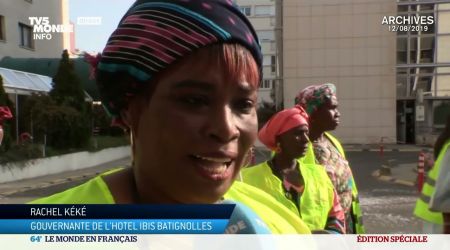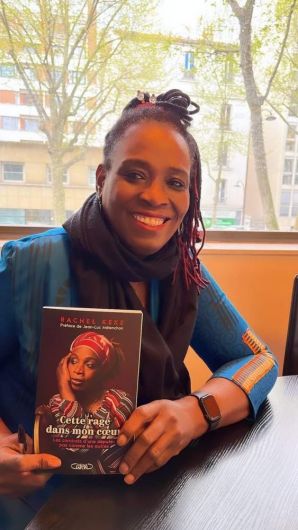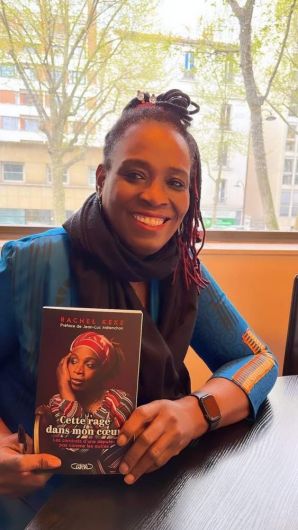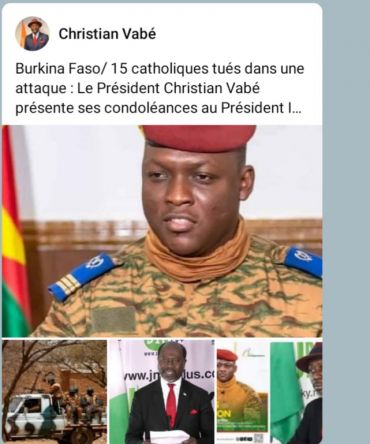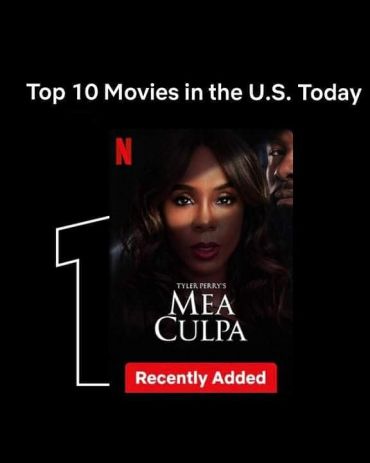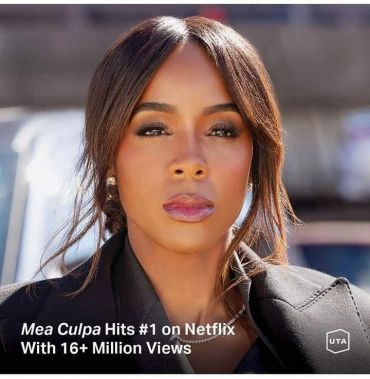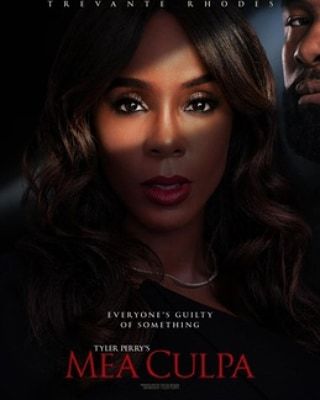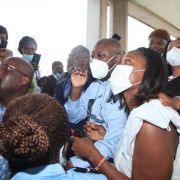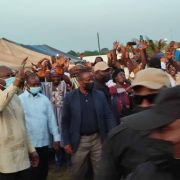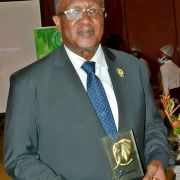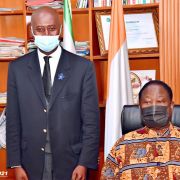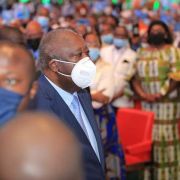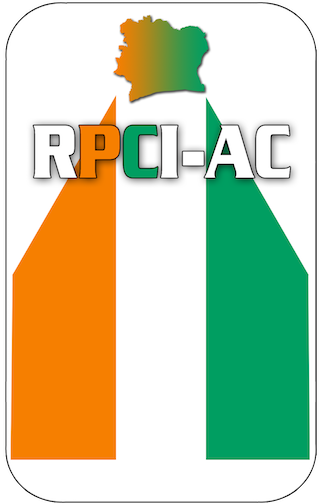INSIGHT IN THE IVORIAN CRISIS FROM 2002-2010
INTRODUTION
Cote d’Ivoire is a country situated in the Western part of the African continent, neighbouring Ghana on the East, Burkina Faso and Mali on the North and Guinea in the West. It had about 16 million inhabitants by
INTRODUTION
Cote d’Ivoire is a country situated in the Western part of the African continent, neighbouring Ghana on the East, Burkina Faso and Mali on the North and Guinea in the West. It had about 16 million inhabitants by
2004, but with all the killings that have being going on since then it will now be difficult to evaluate how many people are left in the country.
Cote d’Ivoire is very rich in natural resources which include Oil, Coal, Cocoa and Coffee. The quality of the Ivorian Oil is said to come second to Iraq’s. And we are the world first producer of Cocoa.
President Gbagbo is a nationalist and a panafricanist, which means that He aims to serve the Ivorian and the African People interests first. He is a president who is deeply connected and in symbiosis with his people, the army and all the institutions of the country. So you can easily imagine why the so called International Community led by France is wagging a very fierce war against him.
The purpose for this presentation is to give an overview of the current Ivorian crisis as follows:
- How was the rebellion that overthrew Laurent Gbagbo from power set up in 2002?
- How the inherent crisis to the rebellion was managed from 2002 till the 2010 presidential elections?
- Would the 2010 elections create the conditions that would establish the basis for the best possible future for the Ivorian People?
- The post electoral crisis: Who did what and why?
HOW WAS THE CURRENT REBELLION ORIGINATED IN THE IVORY COAST?
The current rebellion in the Ivory Coast took roots well before president Gbagbo came to power.
Cote d’Ivoire was ruled by former president Houphouet Boigny for about 40 years. And Alassane Ouattara was imposed to him by the international financial organisations as his Prime Minister in the very last days of his rule. After his death in December 1993, the article 11 of the Ivorian constitution allowed former president Bedie, then president of the National Assembly to take over.
Under President Bedie, there were two groups of soldiers called “Zinzin” and “Baefoue”. These are a certain class of soldiers who had been enrolled in the military service for a short period, and whom time had expired. But they were not officially integrated in the regular army of the country. Coulibaly Ibrahim, alis Ib was one of those. These soldiers claimed that they were not paid for the service rendered to the country under Bedie. In December 1999, a coup d’etat was perpetrated against president Bedie. This coup was claimed by the military junta under General Guei, then chief of the Ivorian Army.
Under General Guei, the “Zinzin” and the “Baefoue” got divided into two groups, one of them supported him while the other group was against him. Under the leadership of IB, the latter group organised a coup against General Guei. After the so called coup baptised as the “White Horse Coup” failed, some of them fled to Burkina Faso where they took refuge for a while.
This trouble was underlying the Ivorian political trend when the 2000 presidential elections took place, which pitted against each other General Guei and Laurent Gbagbo. And Laurent Gbagbo was a victor. Former Prime Minister Alassane Ouattara and Former President Bedie’s candidacies were rejected by the constitution. Alassane Ouattara was so frustrated by this that He vowed to take revenge. He could not accept the “humiliation” and the “constitutional discrimination” against him. So he vowed to srike Gbagbo’s power and render the country ungovernable by him.
Some of the “Zinzin” and the “Baefoue” who had remained in the country started a mutiny to have their situation reconsidered by Gbagbo’s government, for them to be officially integrated in the regular army with all the advantages attached to it. But they had to meet certain conditions first.
While the government of Laurent Gbagbo engaged negotiations to seek an outcome, the others who had fled to Burkina Faso, those who were initially against General Guei returned to the country and joined into the mutiny. This is how the mutiny was recuperated, supported and financed by Alassane Ouattara. On the 19th September 2002, the rebellion clashed all over the country with Bouake, the second city of the country, as basis. Hence the mutiny turned into a bloody rebellion, which divided the country into two parts, with the North controlled by the rebels, later baptised as the Forces Nouvelles (The New Forces) officially led by Soro Guillaume, which supported Alassane Ouattara; and the South in the hands of the Gbagbo-led government. Since then Cote d’Ivoire had two governments, administrations, armies and “national” leaders.
THE CRISIS FROM SEPT 2002 TO THE PRESIDENTIAL ELECTIONS OF 2010
The structural faults which lay at the base of the 2002 rebellion include such inflammable issues as trans-national tensions affecting especially Cote d’Ivoire and Burkina Faso, Ivorian ethnic and religious antagonisms, sharing of political power, and access to economic and social power and opportunities. Taking all this into account, the African Union understood that the lasting solution of the Ivorian crisis necessitated a negotiated agreement between the two belligerent Ivorian factions, focused on the interdependent issues of democracy, peace, national reconciliation and unity. After many other negotiations had failed to resolve the crisis, President Thabo Mbeki was commissioned by the African Union as the mediator between the two camps. Tabo Mbeki convinced President Gbagbo to use article 48 of the Ivorian Constitution to allow Alassane Ouattara to be eligible at the forthcoming presidential elections. At the request of the rebels, and as part of the peace-seeking negotiations, President Gbagbo ordered the National Assembly to revised further dispositions of the constitution as a gesture from his government and himself “to make them feel at home and integrated”. But no compromised was obtained on the part of the rebels despite the fact that the texts of the agreements, especially the Ouaga IV agreement (the fourth agreement to the Ouagadougou Political Agreement) called for the Forces Nouvelles to return control of the North to the government and complete disarmament two months before the elections.
For instance, in protracted negotiations from 2002, the Ivorians agreed that the presidential elections would not be held until various conditions had been met. These include the reunification of the country, the restoration of the national administration to all parts of the Ivorian territory, and the disarmament of the rebels and all militia and their integration in the national security machinery, with the latter process completed at least two months ahead of any presidential elections. Despite the fact that none of this was honoured, the presidential elections were allowed to proceed.
WOULD THE 2010 ELECTIONS CREATE THE CONDITIONS THAT WOULD ESTABLISH THE BASIS FOR THE BEST POSSIBLE FUTURE FOR THE IVORIAN PEOPLE?
This was not done
Article 48 of the constitution stipulates that “Whenever the institutions of the Republic, the independence of the Nation, the integrity of its territory or the execution of its international commitments are threatened in a grave and immediate manner, and that the regular functioning of the constitutional public powers is interrupted, the President of the Republic takes the exceptional measures required by those circumstances after (the) obligatory consultation of the President of the National Assembly and of that of the Constitutional Council. He informs the Nations by a message. The National Assembly meets of rights”. The instance of the Ivory Coast was that the country was at war. There was a rebellion financed by Ouattara, which had parted the country into two, killing officials, innocent civilians and depriving honest citizens from their livestock. Therefore with regard to this article, President Gbagbo had the right to make the necessary decisions including staying into power until the country had completely come out of war.
President Gbagbo argued that with weapons and illegally armed soldiers going around the country, it was not possible to organise free and fair elections. It was perfectly foreseeable that elections held in such conditions would further entrench the very conflict it was suggested they would end. So for him the presidential elections were not the solutions to the crisis. Any elections held under these circumstances would inevitably entrench the divisions and animosities represented and exacerbated by the 2002 rebellion.
Rather, the International community insisted that what Cote d’Ivoire required to end its crisis was to hold democratic elections, even though the conditions did not exist to conduct such elections. The international community decided to launch a very evil and denigrating campaign against Laurent Gbagbo, portraying him has someone who was against democracy, a dictator who was using the art 48 of our constitution to cling onto power.
As a result, though they knew that this proposition was fundamentally wrong, the Ivorians could not withstand the international pressure to hold the elections. Agreements relating to what needed to be done to create conditions for free and fair elections were wilfully and contemptuously ignored by the international community in favour of the rebels.
THE 2010 POST ELECTORAL CRISIS IN THE IVORY COAST
1- The Constitutional Council and Its standing in the Ivorian jurisdictional system
2- The Independent Electoral Commission and its role in the organisation and the proclamation of the elections results
3- The part played by France and the USA through their ambassadors in the Ivory Coast
4- The Human Rights abuse carried out by the rebels in the Northern part of the country during the elections as testified by both the African Union and the EU observation commissions
The Ivorian Constitutional Council (CC) is the only body constitutionally empowered to determine the winner in any presidential election and to install the president. The Independent Electoral (IEC) is mandated to conduct the elections and forwards its provisional results to the CC within the three days following the day of the elections. But after the three days had expired, the French and the US ambassadors in the Ivory Coast invited the Chairman of the electoral commission to Ouattara’s headquarter (l’Hotel du Golf), where he solely declare this latter winner of the election.
Hence, the very people who insist on the sanctity of the rule of law as fundamental to all democratic practice, elected illegally to recognise the provisional result announced by the chairperson of the IEC on his own, as the authentic outcome of the Ivorian presidential election.
As provided by the Ivorian Law, Gbagbo contested the fairness of the elections in certain part of the country, especially in the North. The CC accepted the majority of the complaints made by president Gbagbo, identified the irregularities, annulled the vote in some districts, and declared Gbagbo the victor.
The chairperson of the IEC did not take these alleged irregularities into account and decided that Ouattara had won.
The envoy of the UN Secretary-General Ban Ki Moon, his fellow South Korean, SRSG Young-Jin Choi also determined that Ouattara had won, but on the basis of fewer votes than those announced by the IEC, Having determined that some of the complaints made by Gbagbo were legitimate. In terms of the votes cast for the two candidates, the IEC, the CC and the UN SRSG made three different determinations.
Encouraged by the UN, France and the USA ambassadors in Cote d’Ivoire, Ouattara sworn himself in at his headquarter (Golf Hotel) and sent the letter to the CC whom it did not recognise the authority. The country then found itself with “two presidents”.
Gbagbo proposed to resolve this matter, which bears on the important issue of the will of the Ivorian People, an international commission should be established to verify the election results, with the important pre-condition that both he and Ouattara should accept the determination of the commission.
This proposal was rejected by the international community despite the fact that it would have resolved the electoral dispute without resort to war, and despite the fact that some election observers questioned the fairness of the elections, especially in the Northern Cote d’Ivoire.
For instance, reporting on the elections in the North, the election observer mission of the African Union led by Joseph Kokou Koffigoh, former Prime Minister of Togo, the independent Society “Société Africaine pour la Démocratie et l’Assistance Electorale” led by Seynabou Indieguene of Senegal, and the Coordination of African Experts (CAEE) from Cameroon, Senegal, Benin, Mali, Morocco, Gabon and Togo led by Jean-Marie Ongjibangte of Cameroon, all sounded the alarm about the elections in the North (Please find attached copy of the Statement of the African Union Observer Mission on the Presidential Election in Cote d’Ivoire on November 28, 2010 made by his Excellency Joseph Kokou Koffigoh, Head of Mission).
For instance, the CAEE said: ”After sharing information with other national and international election observers, we hereby state that the second round of the presidential elections in Cote d’Ivoire was held amidst major problems in various northern regions”. “These problems were stealing of ballot boxes, arresting of candidates’ representatives, multiple voting, refusal to admit international observers to witness counting of ballots, and the murder of representatives of candidates. To that effect, we hereby declare the second round of voting was not free, fair and transparent in these northern localities”.
For its part, to this day, the ECOWAS election observer mission has not issued its report on the second round of the presidential election. Why?
Clearly, the independent commission proposed by Laurent Gbagbo could have been established and empowered to make a definite and binding determination about what had happened. Time will tell us why this was not done.
Further, the UN SRSG took the extraordinary decision to exceed his mandate by declaring who had won the presidential election, contrary to his tasks as detailed by the Security Council. This positioned the UN mission in Cote d’Ivoire (UNOCI) as partisan in the Ivorian conflict, rather than a neutral peacemaker, equidistant from the belligerent parties.
From this point onwards, UNOCI had no choice but actively to work for the installation of Ouattara as president of the country and the removal of Gbagbo. Ultimately, this found expression in the blatant use of its military capacities to open way for the Forces Nouvelles to defeat the Gbagbo forces and capture Gbagbo, under the shameless pretence that it was acting to protect civilians. While obliged to respect its peacekeeping mandate, which included keeping the belligerent forces apart, UNOCI did nothing to stop the advance of the Forces Nouvelles from the North to the South. Nor did UNOCI or the French Licorne Forces, as mandated by the United Nations, act to protect civilians in the area of Duekoue, where, evidently, the most concentrated murder of civilians took place.
From this very moment, the “international community” led by France launched a highly evil campaign of denigration against president Gbagbo and his regime, portraying him as a dictator, a killer, and everything else that we were allowed to see and hear in their media. Various unjustified sanctions were taken against them by the European Union and the international community.
But the Ivorian People were not moved. We had clearly chosen Laurent Gbagbo as our leader and we were not ready to compromise. He formed his government of 23 members and they started to rule the country efficiently as they have been doing since 2002 without asking for a penny from any international institutions, despite the fact that the country had been at war.
Allassane Ouattara and his camp started to call for and international intervention to remove President Gbagbo from power.
Is is important to note that while Laurent Gbagbo is rooted in his people and supported by the Ivorians, Ouattara is highly supported by France and the International Community. They are his sponsors. Why?
The answer lies in the fact that Laurent Gbagbo does not aim to serve the interests of France but of the Ivorian People first. He put Cote d’Ivoire and the African interests first. So this is not the kind of black African president that would please the West, especially for a metropole like France whose colonisation system deeply assimilated its interest with its colonies’ to give itself the power and the arrogance to exploit their natural resources without any restrictions.
France used its privilege in the UN Security Council to position itself to play an important role in determining the future of Cote d’Ivoire, its former colony in which it has significant economic interests. This addresses the national interests of France, consistent with its Francafrique policies, which aim to perpetuate a particular relationship with its former colonies. This is in keeping with remarks made by former French President Francois Mitterand when he said: “Without Africa, France will have no history in the 21st century”, which former French foreign minister Jacques Godfrain confirmed when he said: “A little country (France), with a small amount of strength, we can move planet because of our relations with 15 or 20 African countries”.
Ouattara is a foreigner born in Burkina Faso, and together with President Blaise Compaore, the current president of Burkina Faso, he is responsible for the 2002 rebellion. His accession to power would result in the takeover of the country especially by Burkinabe foreigners, and historically, to date, he has been to advance French interests in Cote d’Ivoire.
It would now be clearly understandable why on the 11th of April 2011, without officially declaring war to the Sovereign State of Cote d’Ivoire, under the express order of French President Nicolas Sarkozy, after six good days of bombarding the presidential residence, a special division of the French Army finally captured President Gbagbo and his wife in the most humiliating manner the world has ever witnessed, their relatives, the staff at the presidential palace and residence, members of the government, members of parliament, mayors and national leaders of the youths.
They handed them over to the rebels of Ouattara, hence making them subjects to any kind or torture and ill treatment.
They all have ended up as humiliated prisoners, mostly under House Arrest in the Northern part of the country, which is still under the occupation of armed rebels. The most fortunate ones managed to flee the country and sought refuge in the neighbouring countries. Many Ivorians have died and have been displaced, much infrastructure has been destroyed, and historic animosities have been exacerbated in the lead up to this outcome (Please see attached Human Right Watch Report dated 02 Juin 2011 on the killings of Gbagbo supporters by pro-Ouattara Forces).
.
CONCLUSION
This is how, just because he is supported by the entire world financial and political international networks as their puppet, somebody can use a simply mutiny to turn an emerging country into a complete ransack.
We do not want Laurent and Simone Gbagbo and the Ivorian people to continue to suffer as abused humiliated victims of a global system which, in its interests, while shouting loudly about universal human rights, only seeks to perpetuate the domination of the many by the few who dispose of predominant political, economic, military and media power.
Finally, the perverse and poisonous proceedings that have afflicted Cote d’Ivoire pose the following urgent question: How many blatant abuses of power will Africa and the rest of the developing world experience before the vision of a democratic system of global governance is realised?
THE ANSWER TO THIS QUESTION PRIMARILY CALLS FOR THE RESPONSIBILITY OF THE AFRICAN ELITE REGARDING THE LIBERATION OF OUR CONTINENT. WE SHOULD KNOW THAT ALL IT REQUIRES FOR EVIL TO REMAIN IS FOR GOOD MEN TO DO NOTHING. THANK YOU.
Source: Autre presse

